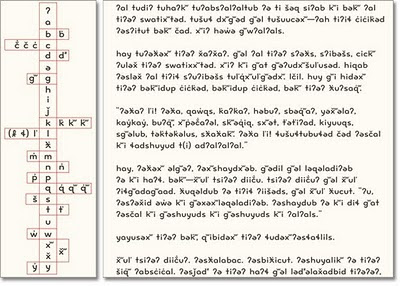 The Leon Metcalf Collection of recordings at the Burke Museum is one of the new additions to the National Recording Registry. Each year 25 recordings (or collections of recordings) are selected by the Library of Congress to be added to a list of "culturally, historically, or aesthetically significant" recordings. This significant collection was made by Leon Metcalf between 1950-1954 and includes recordings of the First People of western Washington State and many other Native American and foreign languages.
The Leon Metcalf Collection of recordings at the Burke Museum is one of the new additions to the National Recording Registry. Each year 25 recordings (or collections of recordings) are selected by the Library of Congress to be added to a list of "culturally, historically, or aesthetically significant" recordings. This significant collection was made by Leon Metcalf between 1950-1954 and includes recordings of the First People of western Washington State and many other Native American and foreign languages.In the early 1900s, Leon Metcalf dropped out of his Marysville, WA high school and began working in a logging camp. He had trouble in school due to a hearing disability and was assisted by a few Snohomish Indian loggers, who took him under their wing, advised him, and taught him some of their language and something about their culture. Thanks to the support he received, Leon returned to school and became a professor and a musician. Years later, Leon returned to Tulalip with a tape recorder to document what he believed was the dying Lushootseed language. (read more about Leon’s story here)
 |
| Lushootseed Alphabet. Courtesy of Juliet Shen. |
The Metcalf recordings include unique content such as personal messages, conversations, and lengthy myth narratives that filled several reels of tape. The revival of interest in Lushootseed language through the work of Upper Skagit elder Vi Hilbert, owes much to this collection, which has been the source of material for language instruction projects and numerous publications since the 1970s.
The Leon Metcalf audio collection was donated to the Burke in 1970 and is housed in the Ethnology Archives. Thanks to their inclusion in the National Recording Registry, the Leon Metcalf collection of recordings will be even more available to interested individuals across the United States.
If you would like copies of these tapes, please contact Ethnology staff. A nominal cost is charged to make copies.
